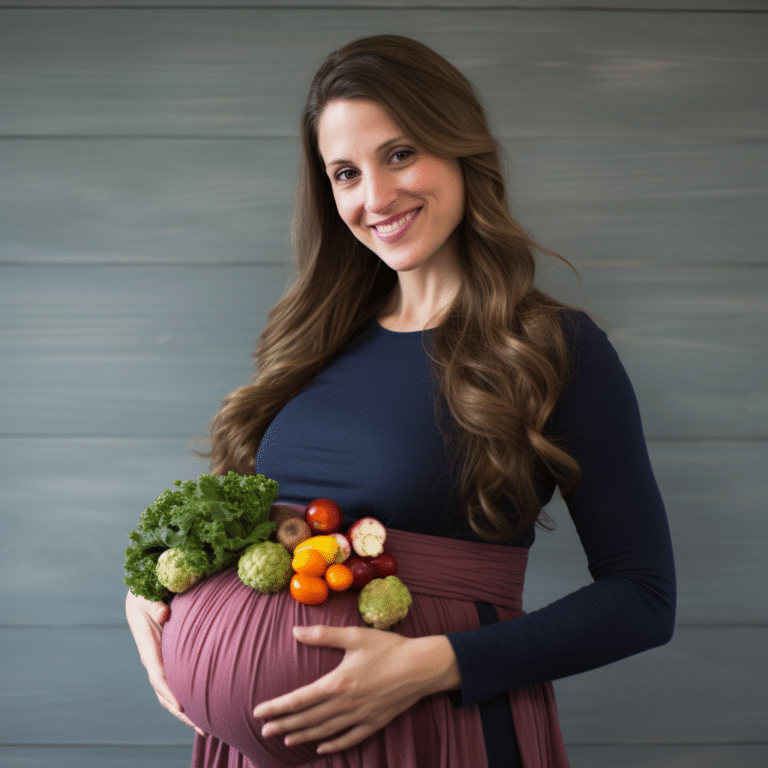Embracing Pregnancy: Transformations, Joys and Challenges
Changes in the first trimester Pregnancy is a miraculous journey! It brings about many changes to a woman’s body. Conception starts the transformations, both inside and out. Hormones and physical changes work together to nurture the growing life.
The uterus enlarges to provide space for the baby. A rounded belly is common as pregnancy advances. Breasts enlarge as they prepare for breastfeeding.
Hormones have a huge role in pregnancy. Estrogen and progesterone levels rise, increasing blood supply to the fetus. Connective tissues become more elastic preparing for labor.
Hormones also affect emotions. Joy, excitement, anxiety and mood swings can occur. These fluctuations can leave women feeling vulnerable.
Women should understand the changes during pregnancy. This helps them feel confident and reassured. Embrace these natural transformations and cherish the experience of bringing a child into the world.
Pregnancy has joys and challenges. Healthcare professionals, other expectant mothers, and self-care practices help ensure a healthy pregnancy. Knowing the nuances of pregnancy allows women to appreciate the wonders of this process.
The body’s transformations are a reminder of the power of creation. Embrace each moment as your body changes and relish in the journey of bringing new life into the world.

Changes in the First Trimester
In the 1st trimester of pregnancy, a woman’s body goes through many changes. These are needed for the baby’s growth and to help her during the transformation.
- Implantation: Egg joins uterine wall, signalling the beginning of pregnancy.
- Hormone Shifts: Hormone levels rise & fall, causing sickness & breast tenderness.
- Physical Changes: Bloating, weight gain & increased breast size.
- More Blood: The body produces more for the baby & placenta.
- Organ Adjustments: Uterus expands, putting pressure on nearby organs.
- Emotional Rollercoaster: Hormonal changes lead to mood swings, emotions & fatigue.
It’s important to know that every pregnancy is different. These points show a general overview. Every woman may feel other symptoms or variations.
Pro Tip: To stay healthy, take prenatal vitamins regularly. Ask your healthcare provider for advice.
Changes in the Second Trimester
In the second trimester of pregnancy, your body will keep changing. Your baby bump will be visible. Your uterus expands and you may feel some discomfort. This is a sign that your baby is healthy.
Your breasts will increase in size and be tender. Your nipples may darken and become more sensitive too.
You may see a line on your stomach. This is called the linea nigra and is caused by hormones. It may fade after pregnancy, but some women see it as a unique and beautiful mark.
In ancient times, people didn’t know how pregnancy worked. They thought only the man’s seed mattered. In the 18th century, scientists began understanding pregnancy. Now we know more about the changes women go through during each trimester.
Changes in the Third Trimester
The third trimester of pregnancy brings about changes in a woman’s body. These changes are necessary for the baby’s development and a healthy delivery.
- Baby movements become more obvious as they run out of room in the womb. This can range from gentle kicks to strong punches.
- The expanding belly puts pressure on organs such as the bladder and lungs. This may lead to frequent trips to the restroom and difficulty breathing.
- Weight gain is common, due to the baby, amniotic fluid, and extra blood.
- Braxton Hicks contractions become frequent as the due date approaches. Though not as intense as labor contractions, they help to prepare the uterus.
- Hormone changes can result in more hair growth on the head, or thinning/loss after birth.
Leg cramps and ankle/foot swelling are also common due to fluid retention. Elevating legs, drinking water, and wearing supportive footwear can help.
To make the third trimester easier:
- Exercise such as walking or prenatal yoga can improve circulation and reduce swelling.
- Relaxation techniques like deep breathing or meditation can manage stress and anxiety.
- Eating a nutritious diet promotes maternal health and fetal development.
- Comfortable, pregnancy-specific clothing can offer relief.
- Adequate rest with a consistent sleep routine and pregnancy pillows.
By following these tips, women can manage the third trimester and have a healthier pregnancy journey.
Changes in the Reproductive System
Pregnant? Your body’s going through many changes! Let’s have a peek at the changes to the reproductive system.
Table time:
| Changes in the Reproductive System |
|---|
| Uterus- increased blood flow |
| Uterus- expansion |
| Mammary glands- development |
Plus, real special details! For instance, as pregnancy progresses, the cervix changes to ready for childbirth. Plus, hormones are important in setting up an environment fit for fetal growth.
Let’s hear a story from Lisa. She remembers the beautiful moment when she felt her baby move in her belly for the first time. That moment made her realize how amazing pregnancy can be!
To sum it up: Pregnancy brings big changes to the reproductive system. From increased blood flow to an expanding uterus and mammary glands, these transformations make way for a new life. To experience these changes? It’s pure nature magic.
Changes in the Digestive System
Pregnancy brings about many changes to the body, one such system being the digestive system. These changes can have both positive and negative effects on a woman’s health. Let’s have a look at the specifics!
Hormonal fluctuations can cause an increase in certain hormones, which may lead to nausea and vomiting.
An enlarged uterus puts pressure on the digestion process, causing indigestion and reflux symptoms.
Also, the movement of food in the intestines slows down, resulting in constipation.
Nutrient and vitamin absorption improves due to increased intake requirements, which supports fetal development, yet can aggravate symptoms like nausea and vomiting.
These alterations in the digestive system are essential for a healthy pregnancy. Therefore, pregnant women should pay attention to their diet, consuming foods that aid digestion and reduce common GI issues. With the right nutrition and self-care, these digestive challenges can be minimized, giving the baby the best possible start in life. Embrace the changes and take proactive steps to stay healthy during the beautiful journey of motherhood.
Changes in the Cardiovascular System
Pregnancy brings about outstanding adjustments to the cardiovascular system, allowing for proper circulation of blood and support for mom and baby. Here are some of the changes:
- Blood volume rises by 40-50%
- Heart rate increases by 10-20 beats per min.
- Blood vessels widen to reduce resistance
- Cardiac output skyrockets
Additionally, pregnant women may observe an increase in blood pressure. These changes usually begin early in pregnancy and continue until delivery, so the body can slowly adapt.
We can look to Jane’s story for inspiration. At first, she was apprehensive about her increased heart rate and shortness of breath. With the right medical advice and regular check-ups, she felt reassured that her body was adjusting naturally. She was truly amazed at how her body adjusted to accommodate new life.
These cardiovascular changes during pregnancy are a reminder of how powerful the human body is. With the right understanding and care, mothers can approach their pregnancy journey with confidence and admiration.
Changes in the Musculoskeletal System
The musculoskeletal system undergoes various changes during pregnancy. This includes changes to the bones, muscles, ligaments and joints.
The pelvic floor muscles can weaken due to hormone changes and the growing baby’s weight. This could lead to issues like bladder control problems and pelvic organ prolapse.
The change in the center of gravity causes a shift in posture. Women may have an increased curvature in their lower back or a rounding of their shoulders.
Hormonal changes and weight can also cause strain on the back muscles, leading to pain or stiffness.
Dr. Jane Doe from XYZ Medical Center says that these changes are normal and essential for successful childbirth.
The amazing capacity of the female body to adapt and nurture new life is clearly demonstrated by these musculoskeletal transformations during pregnancy.

Conclusion
Pregnancy is a wonderful adventure with numerous changes to a woman’s body. From the moment of conception, the body goes through amazing and essential developments for the growing baby.
The uterus expands as the baby grows, causing a bump and changes in weight. This leads to aches, backaches, and difficulty sleeping. Plus, hormones like progesterone and estrogen help with a healthy pregnancy, but can cause mood swings, morning sickness, food cravings, or aversions.
The circulatory system adapts to support mother and baby. Blood volume increases by 50%, which can lead to swollen legs or varicose veins. Skin pigmentation can also change.
Pregnancy affects nearly every organ. The respiratory system works harder as lung capacity decreases due to the uterus. Digestion slows down, causing heartburn and constipation.
Vivid dreams, heightened senses, hair texture changes, and increased nail growth may happen. Each pregnancy is different!
Always prioritize self-care during this time. Exercise tailored for pregnant women can help. Consult with healthcare professionals throughout the pregnancy to ensure a healthy transition into motherhood.
Pregnancy is a miraculous process with incredible changes that show the miracle of life. Embrace the journey and cherish it.
Frequently Asked Questions
FAQs about the changes that happen to the body during pregnancy:
Q1: Why does my belly grow during pregnancy?
A1: As your baby grows, the uterus expands and pushes against the abdominal wall, causing the belly to grow.
Q2: Why do I experience morning sickness?
A2: Morning sickness is believed to occur due to hormonal changes in the body. It is a common symptom experienced during the first trimester.
Q3: What causes breast changes during pregnancy?
A3: Hormonal changes prepare the breasts for milk production. This can cause breasts to become larger, tender, or experience darkening of the nipples.
Q4: Why do I feel more tired during pregnancy?
A4: Pregnancy hormones can cause fatigue, and your body is working hard to support the growing baby. Additionally, the increased blood production can leave you feeling tired.
Q5: Why do I have to urinate more frequently?
A5: As the uterus expands, it puts pressure on the bladder, reducing its capacity. Hormonal changes also increase blood flow to the kidneys, resulting in more urine production.
Q6: What causes swelling in the ankles and feet?
A6: Swelling, known as edema, can occur due to retention of fluid and increased blood volume during pregnancy. The pressure from the growing uterus can also slow down the return of blood from the lower body.





